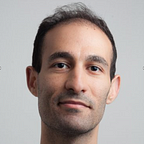Choose Your Words Wisely
If I say “strawberry ice cream”, strawberry ice cream will be the first thing that pops into your mind. It’ll start with a visual mental image, but you might go on to recall its fruity taste and frosty sensation too. If I instead told you not to think of strawberry ice cream, you’d probably still think of strawberry ice cream. For better or worse, words rapidly turn into mental images.
Mental imagery is often involuntary and prompted by what people around us say. The reason we cover our ears when people start talking about repulsive or terrifying scenes is because we know what our mischievous brains will do later when we try to sleep.
Verbal communication is primarily designed for sharing important information, so it directly guides our attention. You see this effect in experiments when people look for hidden objects. If you say the word “square”, people are faster and more accurate in detecting square-like visual images, but slower in detecting circle-like images. And the reverse is true if you say the word “circle”. And this all happens automatically even if the words are random and unhelpful for your task. Language creates expectations or “sensory templates” in the mind about how an upcoming event should look or sound, and we then inevitably search for information that fits.
You may have noticed throughout your life that certain words are particularly good at grabbing your attention. The most obvious example of this is the cocktail party effect. When we stand in a noisy bar with friends, we’re good at narrowing our attention to focus exclusively on the words that a friend is saying, while filtering out the voices around us. The irrelevant voices turn into one big monotonous buzz.
However, if our name pops up within that buzz, our lights immediately come on. In other words, our brains are continuously processing the noise around us, even when we’re not aware of it. And when information within the buzz is suddenly relevant (nothing is more relevant than our own name), then our conscious attention shifts from the conversation with our friend to “is that stranger talking about me?”
Another type of word with a priority pass into our consciousness is the taboo type. I don’t want to use any of those words directly in this article so I’ll exchange a commonly used example for the rhyming euphemism “cluck”. Even when you’re not listening to a conversation, it’s hard to stay tuned out if it suddenly features a “cluck”. If we are with close friends who regularly swear, it can become a more normal word. But at a formal event, we immediately recoil when someone exclaims “cluck this” or talks about their “clucking boss” at work. Language automatically impacts our emotional and behavioral systems.
Taboo words connect with our emotional systems in a way that neutral words do not. They elicit automatic stress-related physiological reactions. Some evidence suggests that we have two distinct language systems in the brain: one closely related to emotional vocalizations which handles swearing and cursing, and another for more advanced information sharing. Neurological disorders like aphasia are characterized by an inability to speak or understand language, and yet patients can often curse and swear just fine. Their brain damage is confined to the informational language system rather than the emotional system.
We have a lot in common with other animals when it comes to emotional vocalizations. In 2018, Toshitaka Suzuki — a researcher in Japan — tested whether bird alarm calls stimulate sensory templates in bird minds, similar to what language does in human minds. He put a loudspeaker in a tree to broadcast bird alarm calls and then examined how birds would react to a stick that moved like a predatory snake. With general alarm calls, a bird would ignore the stick. But with certain specific calls, a bird would fly within a meter of the stick to survey exactly what was going on.
Those specific bird calls were analogous to the word “snake” for humans. They automatically stimulated the mental image of a snake in bird minds. Birds then shifted their visual attention toward objects in the environment that resembled the visual template for a dangerous snake. In the experiment, that object happened to be a moving stick.
Whether you’re a bird or a human, language has some serious control over what you think, feel, and do. It’s why good writers are so engaging and why good speakers are so persuasive. They meticulously craft their language to stimulate just the right images in your mind at just the right moment.
Think of all the life decisions that hinged on the precise wording a friend or mentor used when you asked for their help. One or two words can decide a person’s fate. So choose your words wisely.
Want more practical scientific insights into health, happiness, and productivity? Sign up for my free newsletter at erman.substack.com
